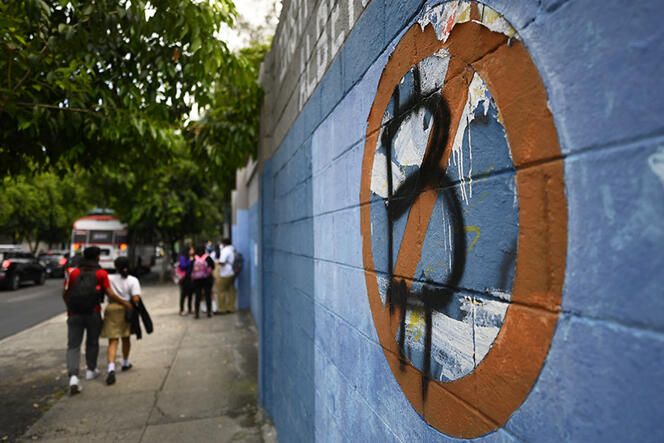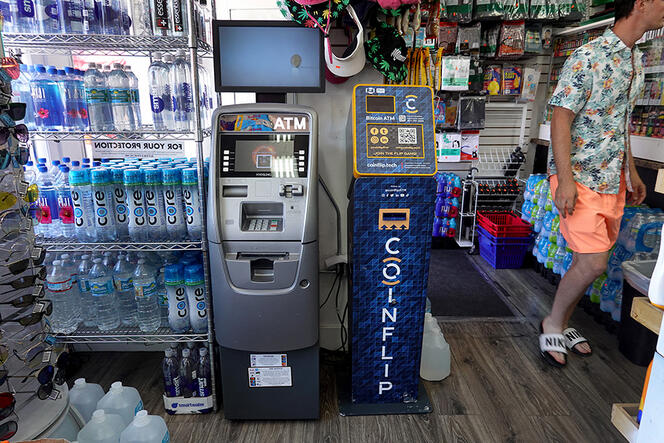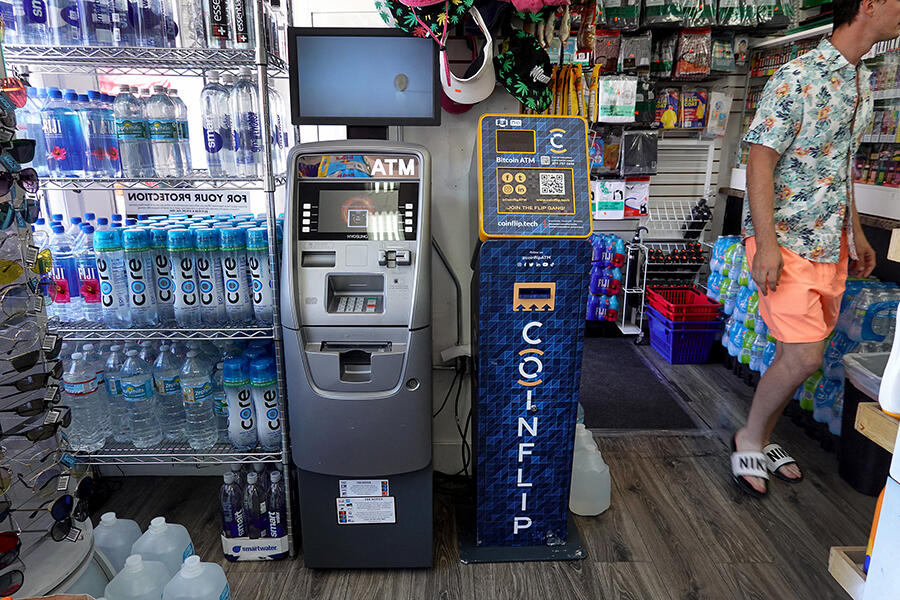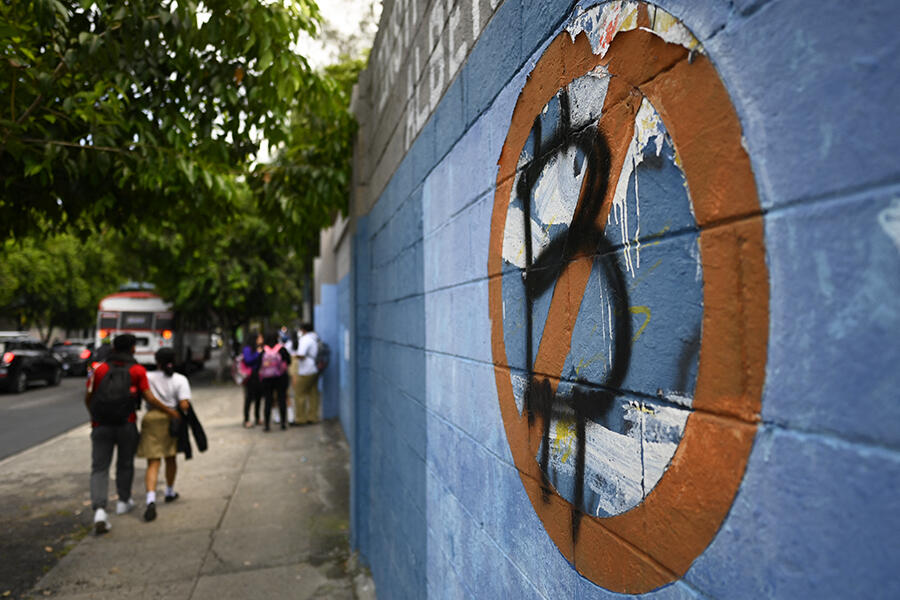You are here
Cryptocurrencies beyond the buzz

The first bitcoins were issued on 3 January, 2009. While this event went relatively unnoticed at the time, it has nevertheless left its mark on history. “Bitcoin1 marks the birth of cryptocurrencies!” explains Julien Prat, an economist at the Centre for Research in Economics and Statistics (CREST)2, and co-head of the Blockchain@X academic chair at École polytechnique. Under the pseudonym Satoshi Nakamoto, an anonymous individual – or group of individuals – had just come up with a major innovation. A cryptocurrency, also known as a cryptoasset, is a computing protocol associated with a shared database for peer-to-peer payments, which is to say in a decentralised manner without involving a bank. A small revolution!
A cryptocurrency is based on a blockchain, in which groups of information are linked chronologically; it is a shared and inviolable public ledger that records all transactions between participants. “It was the first time that a blockchain was combined with decentralised management,” Prat adds. “No one has control over the right to record a transaction. It’s democratic.”

A programme manages the number of bitcoins issued: every 10 minutes, computers (known as “miners”) receive tokens as a reward for validating transactions and recording them in the blockchain. “This immediately gave the currency credibility. Once you commit, you can create rarity, and hence value.” It did not take long for Bitcoin to achieve global success. Its value took off over the years, and thousands of other cryptocurrencies were created in its wake, including Ethereum, the second largest, along with Ripple, Cardano, Solana, and others.
Scientific obstacles and dangers
But the story does not end there. In addition to being a scientific revolution, these new financial products raise major challenges. A first involves how some of these cryptocurrencies function. In the example of Bitcoin, which is by far the largest today3, the creation of new tokens depends on an extremely energy-intensive protocol. The right to “mine” or “validate” a new block is reserved to the winner of a competition that entails solving a computational puzzle. This is the method known as proof of work.
“This requires an enormous – and constantly increasing – amount of electricity!” exclaims the specialist Bruno Biais, a CNRS research professor at the GREGHEC4. The electricity needed to operate the Bitcoin network is between 62 TWh and 230 TWh per year. “To reduce the blockchain’s carbon footprint, the solution would be to shift from proof of work to proof of stake, which is much less energy-hungry.” In this case, the basis is not computing power but the capacity to stake one’s capital. Making this transition is very complex within a decentralised system, although Ethereum was able to do so in September 2022.
The great volatility of cryptocurrencies has been singled out, as has the risk of speculative bubbles. The price of such moneys can vary tremendously, rising very sharply and then crashing when the bubble bursts. For example, in November 2021 a bitcoin token reached its highest value of $69,000. Two months later, it had fallen to the $30,000 range! This is due to the very nature of cryptocurrencies, which are backed by neither an asset nor a country’s economy. Unlike the euro or the dollar, for example, issuing digital units is not managed by any central bank. The value of a cryptocurrency is therefore based solely on the confidence placed in it. “It is all a question of belief,” Biais adds. “If a traditional currency has value, it is because we trust it has. As beliefs change, values vary. In the case of official currencies there is less fluctuation, as they are legal tender, and are used to pay taxes. So euros will always be attractive!”
On the contrary, a cryptocurrency is not protected against people not believing in its value or wanting it any longer, in which case a bitcoin would be worth $0. “But it could also stabilise one day, should it become more standard and customary, with beliefs fluctuating less,” the researcher concludes, without being able to predict what will actually happen. In any event, this volatility poses risks for savers. “This is fine if they know they are taking risks, if they do it for fun, like playing roulette at the casino. Otherwise, it’s not a good idea for small savers to buy bitcoins, thinking that this will pave the way for their retirement!”
Intermediaries between the blockchain and users can also be a source of danger. While cryptocurrencies are based on the principle of decentralisation, a whole ecosystem gravitating around these financial products has emerged, and sometimes for the worse. These companies can take their clients down with them if there is a problem, and even scam some of them. In recent years there have been numerous bankruptcies on cryptocurrency stock exchanges, adversely impacting investors.
For example, the FTX exchange and trading platform, which was based on suspicious financial arrangements, declared itself bankrupt in November 2022. It put many of its clients in a difficult situation, as they no longer had access to the money they had deposited into their accounts. Today FTX owes over $8 billion to more than 100,000 creditors5. In January 2023, amid a crisis of confidence, the cryptocurrency lending firm Genesis declared bankruptcy, with debts exceeding $3.5 billion6.

Because they are not part of a legal framework and preserve anonymity, cryptocurrencies can be used for reprehensible activities such as tax fraud, money laundering, and financing terrorism. “What you have is a financial system that is pseudonymous, with no rules or standard regulation,” Prat admits. This allows for operating outside the system and engaging in criminal activities and scams through cryptocurrencies, for instance with ransomware. Prat nevertheless tempers: “In the blockchain everything is traced. So if we know that a particular address belongs to a criminal, everything that person does is visible and recorded online. This money can never be spent, no one will be willing to accept it. It will never be transferred to the traditional financial system!”
Towards more regulation
In the face of these risks and recent scandals, what policy and regulatory responses can public authorities implement to protect savers, investors, and banks? “I believe it is difficult to regulate or ban purely decentralised activities. However, it is possible to control links to the regulated sector, especially during conversion into fiat money (currency backed by a central bank), as is already the case. The best way to enhance protection against fraud is to improve the tools for reading and analysing the data in the chain, namely by developing appropriate methodologies based on artificial intelligence.”
There has been notable progress in Europe, which just took a historic step by imposing controls on the entire cryptocurrency sector. The Markets in Crypto-Assets (MiCA) regulation approved by the European Parliament on 20 April, 2023 will require transparency from cryptocurrency issuers and traders. In particular, companies will have to receive the Crypto-Asset Service Provider (CASP) status in order to pursue their activities, as well as practice a “Know Your Customer” policy, which will make it possible to check the identity of clients, as well as to combat the use of cryptocurrencies for fraud and nefarious purposes. Concerns regarding cryptocurrencies – and the subsequent need for regulation – nevertheless grow out of the specific economic context and location in question.

Interesting alternatives
In some situations, cryptocurrencies can offer worthwhile opportunities, as they represent genuine alternatives in economically unstable countries. “When the currency functions fairly well, as in Europe and the United States, why would you pay for your baguette using bitcoins? There’s no interest in doing so. It’s only for investments,” Biais points out. “But under other circumstances, it fulfills a need: when the currency becomes dysfunctional in certain countries, it can potentially serve as an alternative.”
For instance in 2019, when the banking system collapsed in Lebanon, it became impossible to make payments via banks. Cryptocurrencies subsequently became very useful, especially for business owners with economic activities abroad. Their use expanded in developing countries (Nigeria, Kenya, Vietnam, India, Pakistan…)7, but with no comparison to El Salvador, where bitcoin was adopted as a legal tender in September 2021. Yet the population did not take to it as expected, and it is not truly accessible to the elderly or underprivileged, as it requires a smartphone and an Internet connection8. What’s more, bitcoin’s great volatility could pose serious financial risks for the locals. “If you live in a country where prices are not expressed in bitcoins and you have bitcoins, your purchasing power could increase or decrease enormously,” Biais concludes.

Beyond cryptocurrencies, the impressive blockchain
“Focusing on cryptocurrencies when talking about blockchains is like concentrating on emails when it comes to the Internet,” Prat says in jest. “There are so many possibilities with blockchain! A cryptocurrency is just the simplest thing that can be done.” Indeed, it is only one possible application for a blockchain, a much broader technology that addresses the major issue of data sharing. “We live in a world in which information is broken up, fragmented across proprietary databases. The central issue is how to share important material while protecting confidentiality.” This applies to a multitude of areas, including economic, military, geostrategic, and health intelligence. New technologies using blockchains could combine the sharing of sensitive data and confidentiality, especially with the “zero-knowledge proof” system.
The economist believes that another possible application is the digitalisation of currency. A Central Bank Digital Currency (CBDC) would be a new kind of currency issued by a central bank in an electronic format. The use of a shared database would greatly simplify exchanges, as transactions that would be made in digital euros would circulate directly within a blockchain, thereby avoiding banking intermediaries. Could this be the dawn of a new revolution? ♦
Further reading on our website
Towards environmentally-friendly cryptoassets?
A tremendously costly error (Opinion by Jean-Paul Delahaye)
Ransomware: research strikes back
- 1. Bitcoin (with a capitalised “B”) refers to the network, and bitcoin to the unit of account for the cryptocurrency based on the network of the same name.
- 2. CNRS / École polytechnique / Groupe des Écoles Nationales d’Économie et Statistiques.
- 3. https://fr.statista.com/statistiques/803748/parts-capitalisation-bousier...(in French – link is external).
- 4. Groupement de Recherche et d’Etudes en Gestion à HEC Paris (CNRS / HEC Paris).
- 5. https://www.numerama.com/tech/1177476-5-questions-sur-ftx-la-gigantesque... (in French - link is external).
- 6. https://www.coindesk.com/business/2023/01/20/genesis-owes-over-35b-to-to...
- 7. https://www.lemonde.fr/idees/article/2021/12/13/dans-les-pays-en-develop... (in French - link is external)
- 8. https://www.lemonde.fr/idees/article/2022/05/19/au-salvador-le-reve-auto... (in French - link is external).

















